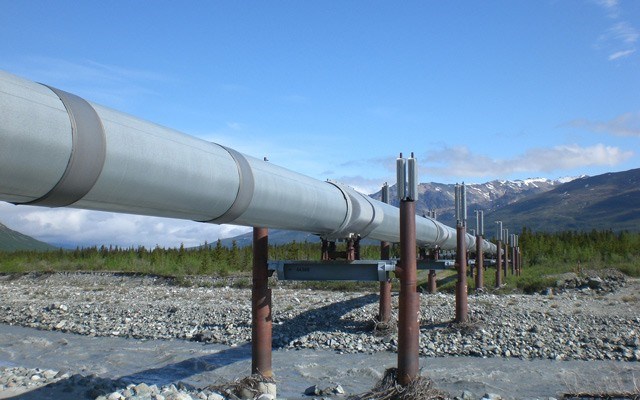There were few places in B.C. that didn't react with passion to the very muted announcement by the federal government last week that the Northern Gateway Project could go ahead, as long as it meets certain conditions.
Indeed, the way the announcement was made came in sharp contrast to the wave of opposition upon the release of the long-awaited decision — not that the nod from the feds came as any real surprise to anyone.
Prime Minister Stephen Harper's Conservatives held no press conference on the news, there was no announcement by the minister, just a few dryly worded paragraphs posted to a website — albeit with the power to change the future of B.C. forever.
The cynic would say the tactic is hardly surprising, as the feds want to get the pipeline underway, and the issue dealt with many months out from the 2015 election. Let Enbridge, the company behind the Northern Gateway Project (NGP), stickhandle it from here, appears to be the clear message from the Conservative government.
One wonders if the proponents are feeling slightly abandoned?
The arguments for and against the $7.9-billion project have created a deep divide. The conservatives want the pipeline built to diversify Canada's economy and give the nation an alternative to it's one oil market the U.S., which gets a cut-rate deal on our oil and is also busy pursuing its own resources through fracking. What happens when it doesn't need Canadian oil anymore?
In that camp it is argued there will be 1,146 full-time jobs and 63,000 person-years of employment during the construction phase. Economically, Enbridge tell us the project represents more than $300 billion in additional GDP over 30 years for Canada and $1.2 billion in tax revenue for British Columbia. In addition, Enbridge says there will be $4.3 billion in labour-related income injected into the B.C. economy, including $800 million spent on goods and services like transportation, equipment, food and hospitality in local communities over the three-year construction period.
On the other side of the ledger we could look at reports by the Canadian Centre for Policy Alternatives. According to its modelling there will be only 1,850 construction jobs per year for three years, and a handful of permanent new jobs once completed. It also reports that the same level of investment would create between three and 34 times the number of jobs in green employment and industries.
"More than two-fifths of Enbridge's stated employment gains come from induced job creation, the local economic impact of expenditures by workers and governments. These impacts are particularly difficult to estimate and can easily be overstated," says author Marc Lee, a senior economist.
In 2012 UBC did a study, sponsored by WWF-Canada, using Enbridge's own figures which puts all the arguments for and against into some context (a copy of the report is available at: www.fisheries.ubc.ca/publications/fcrrs).
It found that in the event of a medium-impact spill, the regional economy could suffer total losses of up to $189-million in output, 1,314 full-time jobs and $98-million in GDP over 50 years. If a high-impact spill occurs, the region could suffer losses of up to $308-million in output, 4,379 full-time jobs and $205-million in GDP (each year, ocean-based industries on the North Coast of B.C. generate about $1.2-billion, provide employment for more than 9,000 people and contribute approximately $700-million to GDP).
In essence, a single high-impact spill could wipe out any gains Canada would make.
There is no doubt that Enbridge will work to make sure that its pipelines are as safe as possible, and government has already announced plans on tanker safety, but no one can guarantee that a catastrophic spill, or even death by a thousand small spills won't happen.
The inevitability of a spill will continue to drive opponents to this project.
Last week CBC spoke to Canadian environmental activist, campaigner and writer Tzeporah Berman. I'll let her have the last word:
"There is no question this pipeline will never be built.
"The government likes to talk about these pipelines as being nation building, and in that respect they are right. They are building a nation of engagement and resistance and hope.
"What we saw...at the rallies (against the pipeline) was almost joy — a collective coming together of people from all walks of life saying we are standing up, we are engaging and we are going to stop this pipeline."




